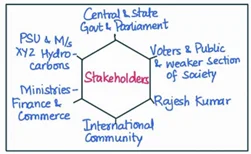Previous PostPawan has been working as an officer in the State Government for the last ten years. As a part of routine transfer, he was posted to another department. He joined a new office along with five other colleagues. The head of the office was a senior officer conversant with the functioning of the office. As a part of general inquiry, Pawan gathered that his senior officer carries the reputation of being a difficult and insensitive person having his own disturbed family life. Initially, all seemed to go well. However, after some time Pawan felt that the senior officer was belittling him and at times unreasonable. Whatever suggestions given or views expressed by Pawan in the meetings were summarily rejected and the senior officer would express displeasure in the presence of others. It became a pattern of boss’ style of functioning to show him in a bad light highlighting his shortcomings and humiliating publicly. It became apparent that though there were no serious work-related problems/shortcomings, the senior officer was always on one pretext or the other and would scold and shout at him. The continuous harassment and public criticism of Pawan resulted in loss of confidence, self-esteem and equanimity. Pawan realized that his relationship with his senior officer was becoming more toxic and due to this, he felt perpetually tense, anxious and stressed. His mind was occupied with negativity and caused him mental torture, anguish and agony. Eventually, it badly affected his personal and family life. He was no longer joyous, happy and content even at home. Rather without any reason he would lose his temper with his wife and other family members. The family environment was no longer pleasant and congenial. His wife who was always supportive to him also became a victim of his negativity and hostile behavior. Due to harassment and humiliation suffered by him in the office, comfort and happiness virtually vanished from his life. Thus, it damaged his physical and mental health. (a) What are the options available with Pawan to cope with the situation? (b) What approach Pawan should adopt for bringing peace, tranquility and congenial environment in the office and home? (c) As an outsider, what are your suggestions for both boss and subordinate to overcome this situation and for improving the work performance, mental and emotional hygiene? (d) In the above scenario, what type of training would you suggest for officers at various levels in the government offices?
